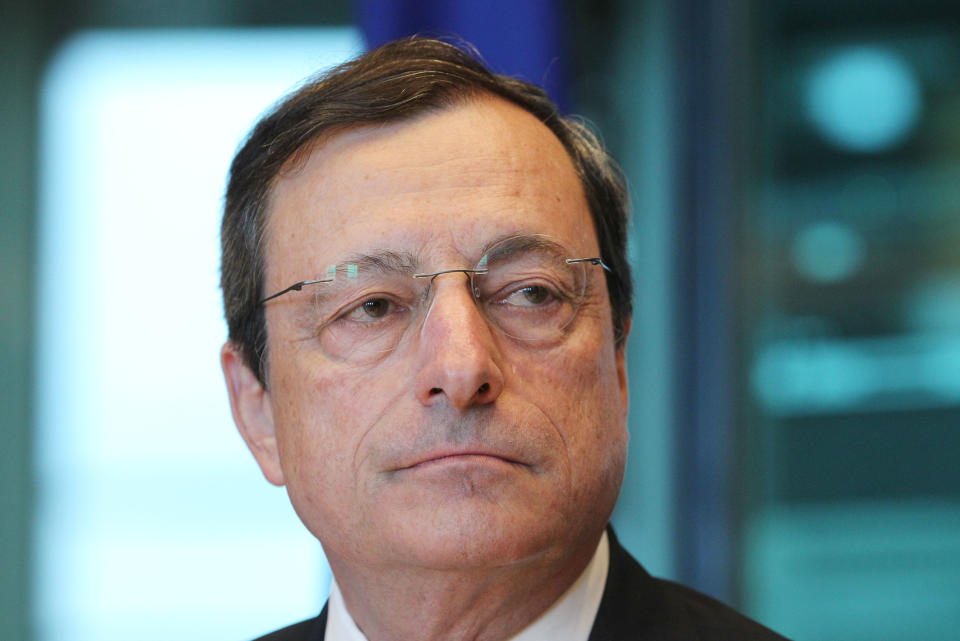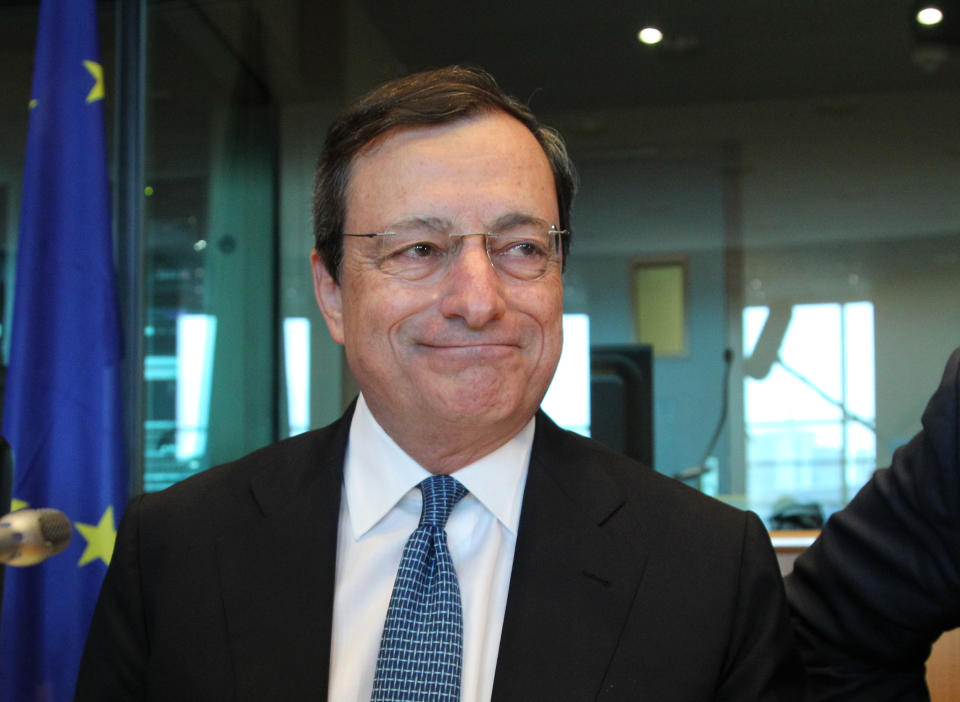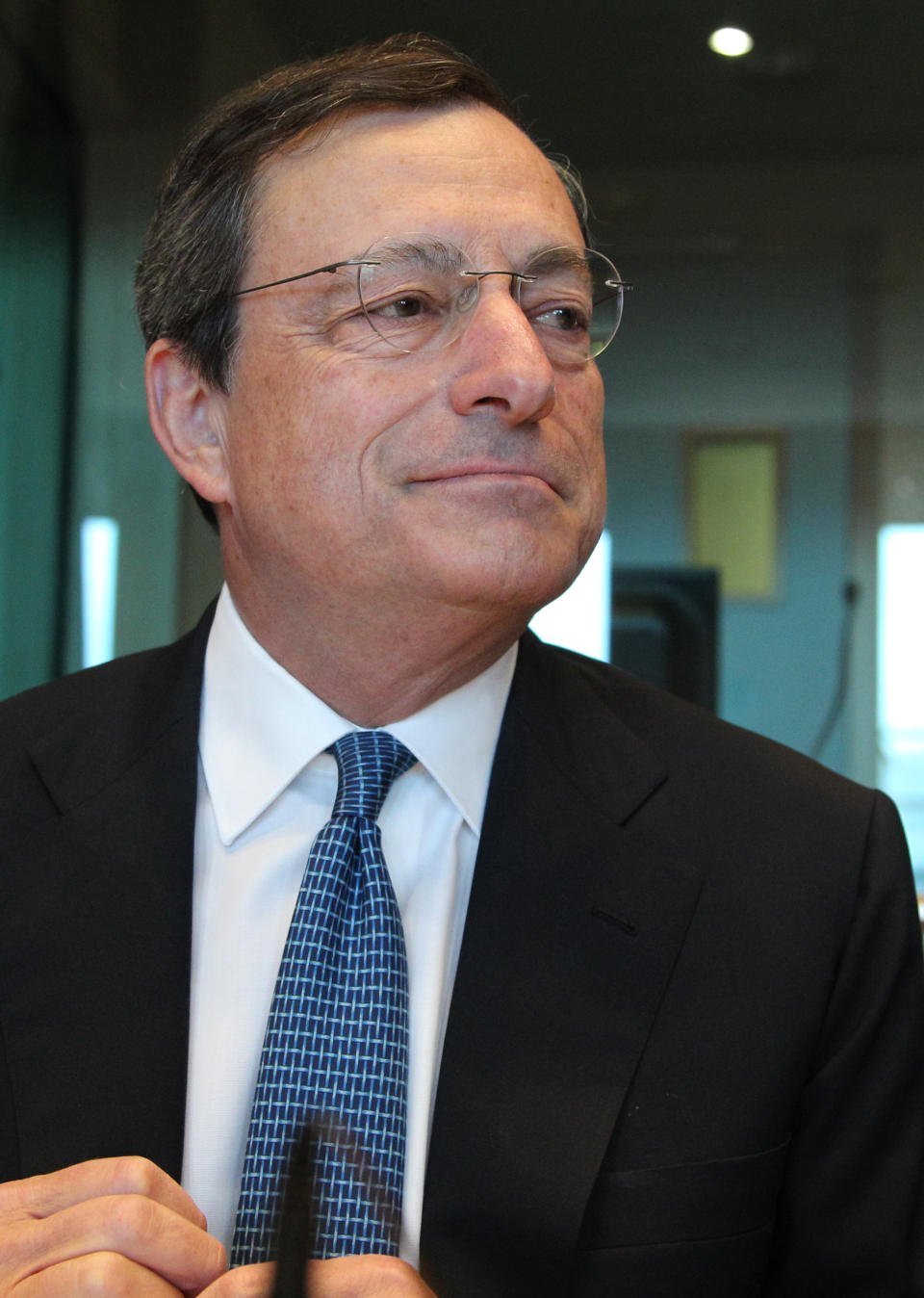Draghi: Leaders must press anti-crisis efforts
FRANKFURT, Germany (AP) — European Central Bank head Mario Draghi says European officials have made a good start toward fixing the region's economic troubles but warned that governments had "no time to waste."
Draghi, speaking before the European Parliament in Brussels Monday, declared last month's crucial European Union summit a "success" — even as borrowing costs for Italy and Spain rose to dangerously high levels that suggest the summit's results are failing to reassure investors.
"I think some of the skepticism is unwarranted," Draghi said. European leaders needed to lay out a long-term vision for a renewed monetary union, he said, and the summit was "the first step toward giving clarity to this concept. In this sense the summit was a success."
"Why do we still have tensions in a number of market segments?" Draghi asked rhetorically. He said that "much has been done at the country as well as euro area level" to reform economies and strengthen the economic management of the euro.
"But we need full implementation," he said.
At the June 28-29 summit, European leaders agreed to make it easier for indebted countries to get loans from the eurozone bailout funds. They also agreed to set up a single banking supervisor under the ECB that could eventually take the burden of bailout out banks off national governments. Eurozone finance ministers are meeting Monday to follow upon the summit decisions.
Draghi said European governments were well aware that they must quickly implement the decisions made at the summit. "They know very much that there is no time to waste. I am a little more confident than most of the comments that have been expressed after the summit. "
Markets briefly rebounded after last month's meeting, with stocks rising and Italian and Spanish borrowing costs falling. Those gains have evaporated, however, as markets focused on diminishing global growth prospects, sagging economies in the indebted countries, and on the many unanswered questions about how the summit's proposals will be implemented. Yields on Spanish government bonds rose on Monday to break through the 7 percent level that forced Greece, Ireland and Portugal to seek a bailout.
Draghi, however, said markets needed to be patient as it would take time for economic reforms to take effect. "So why are we not seeing the benefits?...This action is relatively recent," he said.
Indebted and bailed-out countries are trying to lower their budget deficits in order to get their levels of debt under control. They are also encouraging growth through a range of pro-business strategies. Those include reforming their labor markets by cutting excessive protection for established workers and encouraging the hiring of younger workers to reduce high youth unemployment. Other measures include reductions in bureaucracy and red tape.
However, these measures take time to introduce and show results.
Draghi also told the European Parliament that global central banks have taken "bold, forward looking action" against the crisis. But he said "crisis resolution needs bold actions by central banks — but it also need action by other policy actors, especially governments. "
He also urged eurozone governments to keep reforming their economies to improve growth, fix their public finances, and implement measures to strengthen the euro decided at a European summit last month.
Last week the ECB cut its benchmark interest rate a quarter point to 0.75 percent, while the Bank of China also cut rates and the Bank of England added monetary stimulus for the economy. At his post-meeting news conference, Draghi also suggested the bank would keep looking at its rules on collateral. Loosening those rules can make it easier for banks to borrow from the ECB during difficult times when they cannot find money elsewhere.
On Monday Draghi left the door open to further unspecified ECB action but did not give any clear indication of further steps. "We never pre-commit," he said. "We look at what the situation is, we look at the data and developments and then we make up our minds."



